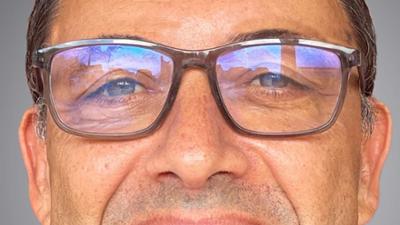
Contact details
- Name:
- Professor Mark Fleishman
- Position/Fellowship type:
- T.B.L. Webster Fellow
- Fellowship term:
- Mid-January 2024 to mid-March 2024
- Institute:
- Institute of Classical Studies
- Home institution:
- University of Cape Town
- Email address:
- mark.fleishman@uct.ac.za
- Website:
- https://ics.sas.ac.uk/people/professor-mark-fleishman
Research Summary and Profile
- Research interests:
- Classics
- Summary of research interests and expertise:
-
For the past five years I have been leading a research project on Reimagining Tragedy from Africa and the Global South (ReTAGS). The project takes a concept – tragedy - from the very beginnings of theatre in its European manifestation and and sets out to reimagine it from a perspective in Africa that is at once directed at the complex challenges of our global postcolonial present and towards our possible futures.The project has involved three workstreams: first, research and study of the archive of postcolonial tragedies produced by an earlier generation in the immediate aftermath of direct colonial rule with a specific focus on theatricality; second, performance analysis of instances of ‘excessive’ revolt outside of the theatre, mostly enacted by a younger generation in the neo-colonial aftermath within the collective realm of popular protest and within the individual realm of postcolonial self-fashioning and characterized by transgressive, often violent, behaviours with potentially tragic and ruinous outcomes; third, artistic research investigations of tragedy in which thinking arises in the course of making.
Before the project began, I had created two significant works based on tragic sources. The first was a version of Medea (1994) at the point at which South Africa was moving from the system of apartheid into a new dispensation, and the second, a version of the Orestes myth, titled In the City of Paradise (1998), in response to the Truth and Reconciliation Commission process a few years later. The latter work was re-staged in 2015 with a new generation of young performers responding to the consequences of the policy of reconciliation proposed by the Mandela government post-1994. I have since, as part of the ReTAGS project, created two more productions that reimagine tragic sources: Antigone (not quite/quiet) (2019) and Oedipus at Colonus: #after sophocles (2023). We have also developed a digital archive platform with capacity to document the entire process of making the productions which can be searched to uncover the moments in which ideas and conceptual themes are raised and enaged with in the rehearsal room and linking them to their actual realisation in the productions.
I am currently working on a monograph to be published by Oxford University Press, which focuses on forms of tragedy manifesting in a particular place, South Africa, and in a specific time, the colonial aftermath. This place-time is an aftermath with an afterlife, suffused with coloniality but in which possibilities for a better future exist, but not yet. In the monograph I examine two approaches to tragedy in the South African theatre, one based on the reworking of extant tragedies for particular political purposes, and one that abandons the plays themselves and reimagines tragedy from an African perspective to engage more metaphysical concerns.